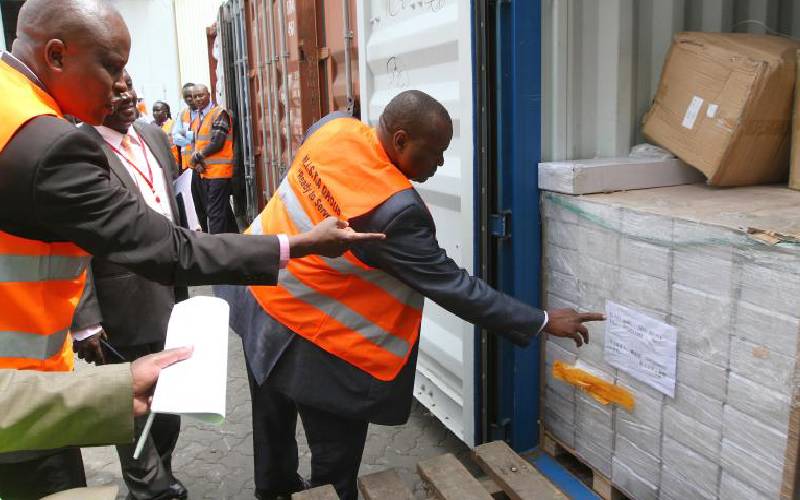×
The Standard e-Paper
Kenya’s Boldest Voice

Parliamentary Committee on Trade, Industry and Cooperatives Chairman Kanini Kega (left) and Nairobi Importers and Small-scale Traders Association Chairman Ben Mutahi inspect a container at the Nairobi Inland Container Depot when the House committee toured the facility last week. [Jonah Onyango, Standard]
Only 201 containers belonging to small-scale traders have been released from the Embakasi Inland Container Depot (ICD) following a presidential directive to clear them within three weeks issued in May.